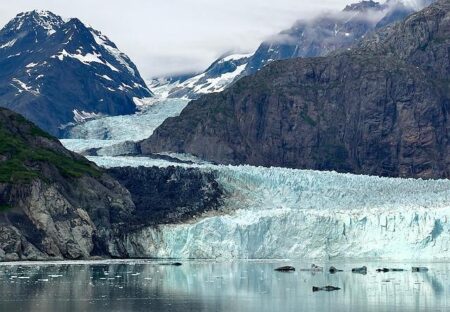Western Sahara remains one of the world’s last unresolved colonial disputes, a territory long overshadowed by geopolitical complexities and international inertia. Known as “the colony Spain never decolonized,” this sparsely populated region on Africa’s northwest coast continues to grapple with a legacy left by its former colonial ruler. The Real Academia Europea de Doctores has recently brought renewed attention to the historical and political circumstances surrounding Western Sahara, urging the global community to confront the unfinished business of decolonization in this disputed land. This article explores the roots of the conflict, Spain’s contested role, and the ongoing quest for self-determination by the Sahrawi people.
Western Sahara’s Lingering Colonial Legacy and Its Impact on Regional Stability
The unresolved status of Western Sahara continues to fuel tensions across Northwest Africa, rooted deeply in a colonial chapter left unfinished. When Spain withdrew in 1975, it left behind a vacuum, sparking a protracted conflict involving the Sahrawi people, Morocco, and Mauritania. The region remains one of the world’s most enduring geopolitical conflicts, with its colonial past obstructing both sovereignty and development. The lack of a clear decolonization process has meant the Sahrawi refugees remain in exile, while the territory’s economic potential-including its phosphate reserves and fishing waters-remains under dispute. This fragile situation complicates diplomatic relations and destabilizes regional security frameworks in the Maghreb and Sahel regions.
The ongoing impasse reverberates beyond Western Sahara’s borders, influencing regional alliances and security dynamics. Key impacts include:
- Heightened military presence: Both Morocco and the Polisario Front maintain significant forces along the berm dividing the territory.
- Diplomatic strain: Regional organizations like the African Union face difficulties enforcing resolutions due to geopolitical divides.
- Economic stagnation: Investment hesitancy undermines local infrastructure and prosperity.
| Factor | Impact | Regional Consequence |
|---|---|---|
| Unresolved Sovereignty | Continued Diplomatic Deadlock | Weakening of Maghreb Integration |
| Refugee Crisis | Humanitarian Strain | Instability in Sahel |
| Resource Disputes | Economic Blockade | Regional Market Fragmentation |
As global attention fluctuates, the colonial residue that haunts Western Sahara remains a major obstacle to peace and prosperity, with immediate implications for the wider region’s stability.
Unpacking Spain’s Role in the Prolonged Struggle for Sahrawi Self-Determination
Spain’s enduring influence over Western Sahara is a complex tapestry woven with colonial legacy, geopolitical interests, and international diplomatic inertia. Despite officially relinquishing control in 1975 under the Madrid Accords, Spain’s exit left a power vacuum exploited by Morocco and Mauritania, sparking decades of conflict with the Sahrawi people. Critics argue that Spain’s failure to facilitate a genuine decolonization process entrenched instability. Today, Spain remains a pivotal player-both as a former colonizer bearing historical responsibility and as a key actor within the European Union, where it balances strategic alliances with calls for Sahrawi self-determination.
- Historical Accountability: Spain’s refusal to organize a Sahrawi referendum prior to withdrawal.
- Diplomatic Ambiguity: Madrid’s cautious stance amid Moroccan sovereignty claims and UN-led negotiations.
- Human Rights Concerns: Growing pressure from civil society over Sahrawi refugee conditions and repression in occupied territories.
| Year | Spain’s Role | Outcome |
|---|---|---|
| 1975 | Madrid Accords signed | Spain cedes administration to Morocco & Mauritania |
| 1991 | UN Settlement Plan proposed | Referendum delayed indefinitely |
| 2023 | Increased diplomatic dialogue | Spain advocates EU support for dialogue |
Strategies for International Engagement and Advancing Decolonization Efforts in Western Sahara
International engagement in the Western Sahara conflict demands a multifaceted approach that amplifies Sahrawi voices and challenges long-standing geopolitical inertia. A pivotal strategy involves strengthening alliances with global human rights organizations and leveraging diplomatic platforms such as the United Nations to keep the issue at the forefront of international discourse. Empowering Sahrawi civil society groups through funding, capacity-building, and digital advocacy tools can galvanize grassroots movements that sustain pressure on colonial powers and occupation forces alike. Equally important is fostering partnerships with influential states committed to decolonization principles, encouraging them to adopt clear stances that emphasize the Sahrawi right to self-determination.
Beyond traditional diplomacy, creative engagement techniques are transforming the landscape of activism. The integration of cultural diplomacy-highlighting Sahrawi art, literature, and history-serves to humanize the conflict and attract global solidarity beyond political circles. The following table outlines key international actors and their potential contributions to advancing decolonization efforts:
| Actor | Role | Key Contribution |
|---|---|---|
| United Nations | Mediator | Facilitate referendums & peace talks |
| European Union | Policy Influencer | Enforce trade restrictions linked to occupation |
| NGOs | Advocates | Document abuses & amplify Sahrawi rights |
| Media | Awareness Builders | Globalize Sahrawi narratives |
- Promote transparent reporting on human rights violations to hold occupiers accountable.
- Support Sahrawi diaspora networks to bridge information and resource gaps internationally.
- Develop educational exchanges to foster global understanding of Western Sahara’s colonial context.
In Retrospect
As Western Sahara remains one of the world’s last unresolved colonial conflicts, the legacy of Spain’s unfinished decolonization continues to shape the region’s geopolitical landscape. The Real Academia Europea de Doctores sheds light on this enduring issue, underscoring the urgent need for international attention and diplomatic efforts to achieve a just and lasting resolution. With tensions persisting between Morocco, the Sahrawi people, and global powers, the fate of Western Sahara remains a critical test of decolonization in the 21st century.




